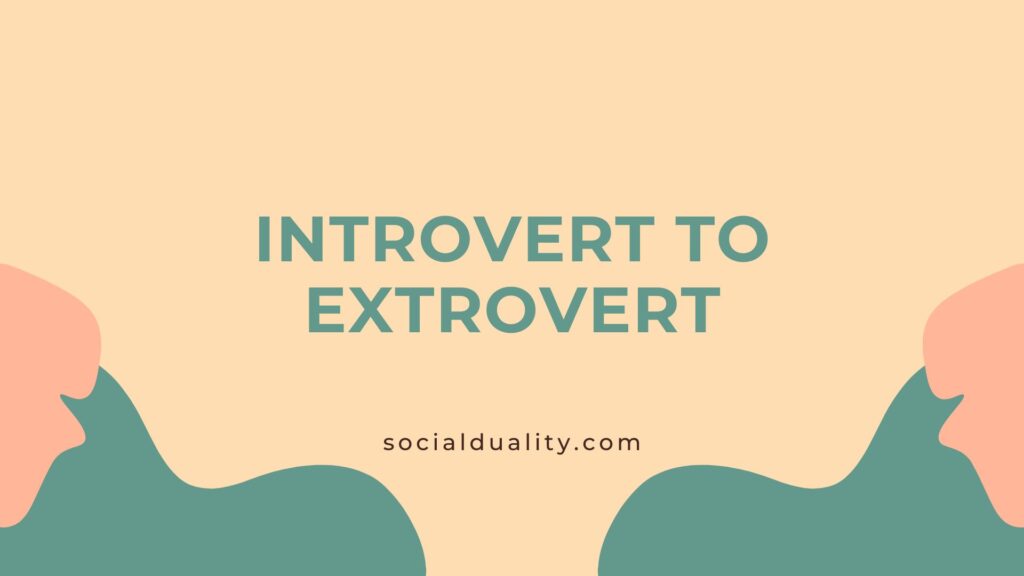Are you an introvert dreaming of becoming an extrovert? It’s like switching from night owl to early bird! You may wonder how to develop these new skills. The journey from introvert to extrovert doesn’t mean changing who you are. It’s about learning behaviors that help you connect better with people. Start small. Attend social events where you feel comfortable.
Enter Your Lucky Number Here Random Challenge Quiz Generator – For Introvert & Lifestyle Improvement.
Practice simple social skills like smiling or making eye contact. These small steps can lead to big changes. Remember, practice makes perfect. And don’t forget to share your favorite tips in the comments. Whether you’re a user or a business owner, making time to connect with others can be rewarding. Who knows, you might even enjoy it!
Key Takeaways
- Understand the difference between introverts and extroverts. Introverts like alone time, while extroverts enjoy being with others.
- Start with social events where you feel comfortable. These help you practice social skills.
- Set small goals like talking to one new person daily. This builds confidence.
- Use active listening to connect deeply with others. It’s a strength for introverts.
- Real success stories show that introverts can enjoy social interactions more with patience and practice.
Recognizing the Difference: Introvert Vs Extrovert
Grasping the nuances between introverts and extroverts can feel like a dance. You’re balancing between quiet reflection and lively chatter. Introverts find solace in solitude, recharging alone, whereas extroverts shine when surrounded by people. This contrast isn’t set in stone, though.
Your journey from introvert to extrovert might involve embracing social events or honing extroversion skills. Start small, attending gatherings in familiar places. It’s like dipping your toes in the water before a swim. Building confidence can be as simple as smiling or holding eye contact. The more you practice, the easier it gets to increase extroverted behaviors.
Chat with others, bring up interesting topics, or share comments about shared experiences. It’s your chance to develop extrovert skills. You might discover hidden strengths.
This user-friendly guide to shifting from introvert to extrovert shows it’s not all or nothing. Business owners often benefit from small business marketing tactics in their transformation journey. Like them, you can make time for social skills development. But always remember, you’re in control of your path.
| Step | Description | Benefit | Keyword Usage |
|---|---|---|---|
| Attend Events | Start with familiar gatherings | Build Confidence | introvert to extrovert |
| Eye Contact | Hold eye contact and smile | Invites Conversations | increasing extroverted behaviors |
| Set Goals | Talk to new people daily | Confidence Boost | extroversion skills for introverts |
| Active Listening | Engage deeply with others | Stronger Connections | practice |
| Join Clubs | Find shared interests | Common Ground | social events |
For more stories about transformations from introvert to extrovert, visit Story Generator.
5 Strategic Steps to Develop Extroverted Traits
Embarking on a journey to nurture extroverted traits involves several strategic steps. First, embrace gatherings where you feel comfortable. This helps in honing your social skills without overwhelming yourself. Boosting confidence is key. Try “fakin’ it till you make it” by smiling and keeping eye contact. Aim to chat with someone every day, pushing your boundaries slowly.
Next, use your innate listening ability. Show genuine interest in conversations, making others feel valued. Incorporate tools that encourage social interaction, like joining a club or a public speaking group. This helps in gaining self-assurance and developing extroverted behaviors.
Want to socialize more as an introvert? Host small gatherings at home. It’s a safe place to practice while having fun. Balance is essential—make time for alone moments to recharge. For more tips on building confidence, check out Matt McWilliams’s advice. Remember, the transition from introvert to extrovert isn’t about changing who you are. It’s about adopting new behaviors and enjoying the ride.


Embracing Social Events: The Introvert’s Approach
Taking on social gatherings can feel like diving into a sea of new faces. But you can transform your approach and start enjoying them more. Start small by attending events with familiar faces. This makes you feel more at ease while you practice your social skills. Gradually, as your comfort increases, you might blossom into more extroverted behaviors.
Confidence is your secret weapon. Try smiling more or using little conversation starters. A simple “Hi, how’s your day?” can open doors. If you’re feeling bold, ask about a topic you genuinely care about. You’ll find that people love to share their thoughts and comments!
The real magic happens when you leverage your natural listening skills. This makes others feel heard and appreciated. It’s not about changing who you are, but about adding new habits to your toolkit. Just like a user might try a new app, you can try new ways to be social. By doing this, you’ll find yourself enjoying these events more, and who knows, you might even start looking forward to them!
Building Confidence: Shifting from Introvert to Extrovert
Feeling the shift from keeping to yourself to embracing more social interactions? Start by finding ways to boost your confidence. Picture yourself as a social butterfly in training. This is your chance to practice your social skills. You might even surprise yourself with how much you enjoy meeting new people.
A friendly smile can be your best friend. It’s like opening a door to new conversations. Ask questions that spark interest, and you’ll find that people love to chat. Think of it as a game where everyone wins.
Remember, you’re on a unique journey, like many introverts who have expanded their social circle. It’s not about changing who you are, but about trying new routes to connect. Just like how some business owners explore new markets, you can explore new social avenues.
If you’re curious about balancing these traits, I shared my thoughts on achieving balance between introversion and extroversion.
| Strategy | Action | Benefit | Example |
|---|---|---|---|
| Smile more | Increase eye contact | Invites conversations | “Hi, how’s your day?” |
| Ask questions | Show genuine curiosity | Engages others | “What’s your favorite hobby?” |
| Set goals | Daily interaction target | Gradual comfort increase | Talk to one new person a day |
| Host small gatherings | Safe social practice | Builds confidence | Invite friends for a game night |
| Prepare stories | Have topics ready | Eases conversation flow | Share a funny personal anecdote |
Tools and Techniques for Increasing Extroverted Behaviors
To shift from being quiet to more talkative, you’ll want to explore various techniques. Start with small gatherings to test new waters. These gatherings are perfect for building confidence and trying out new social skills. It’s like dipping your toes in the pool before diving in.
When you’re ready, join clubs that align with your interests. This common ground makes it easier to connect with others. Limit phone use during interactions; it can be a crutch that keeps you from engaging.
Prepare some conversation starters. Having a few anecdotes or interesting topics up your sleeve can ease the flow of conversation. And always practice active listening—it’s a superpower introverts have, making others feel valued.
Balancing your time is key. Ensure you have moments to recharge after social encounters. Planning an exit strategy can also help. If you feel overwhelmed, a polite departure is your safety net.
For more tips, take a look at The Extroverted Introvert’s Guide.


7 Effective Extroversion Skills for Introverts
To embrace extroversion skills, host small gatherings at home. These events provide a cozy space to build your social skills without feeling overwhelmed.
- Dive into clubs or groups that align with your interests.
- Engaging with like-minded people makes conversations flow naturally.
- Avoid using your phone as a shield during these interactions.
- Be ready with conversation starters. Whether it’s a quirky comment or engaging topics, having something up your sleeve eases nerves.
- Active listening is your secret weapon. It shows genuine interest and makes others feel valued. Balance is essential.
- Recharge your batteries before and after social interactions to maintain energy levels.
- Crafting an exit plan helps keep nerves in check. Knowing you can gracefully bow out if needed reduces stress. This journey from introvert to extrovert transformation isn’t about becoming someone else.
It’s about developing extrovert traits as an introvert and gradually increasing extroverted behaviors.
For a deeper dive into mental strategies, I discuss more about mental-health-strategies-for-introverts-and-extroverts.
| Skill | Activity | Purpose | Benefit |
|---|---|---|---|
| Host events | Small gatherings | Build confidence in safe spaces | Social comfort |
| Join clubs | Interest-based groups | Find common ground with others | Easier connections |
| Limit phone use | No phone in social settings | Encourage face-to-face engagement | Better interactions |
| Prepare starters | Anecdotes and topics | Ease into conversations | Smoother interactions |
| Balance time | Recharge before/after | Maintain energy levels | Sustained social stamina |
Real Stories: The Introvert to Extrovert Transformational Journeys
Real transformations from being more reserved to socially active can be inspiring. Many people have shared their stories of adopting behaviors that encourage social interaction. They start small, like joining clubs or hosting gatherings. These experiences help them develop new social skills and increase their confidence over time.
Business owners often find themselves in need of such skills. They must engage with both customers and employees. By practicing these interactions, they become more comfortable and effective. It’s like a game of practice makes perfect—only here, practice isn’t just about perfecting skills but also about enjoying the process.
Some users have commented on how setting small goals helps. For instance, initiating one conversation a day can make a big difference. They notice a shift in their confidence and soon find themselves thriving in social settings.
Remember, everyone’s journey is unique. You might discover that what works for one might not be your cup of tea, and that’s okay. Finding your way to connect with people is the ultimate goal, and it’s achievable for everyone.
Conclusion
Shifting from an introvert to embracing extroverted traits is like learning a new dance. You don’t have to change who you are; it’s about discovering new moves. Small steps, like attending familiar social events, can make a big difference.
Remember, it’s okay to feel a bit awkward at first. It’s part of the journey. Celebrate every conversation you start or every event you attend. These are milestones in your journey. Over time, you’ll find a balance between enjoying social interactions and cherishing your alone time.
Real-life stories show it’s possible to thrive socially while being true to yourself. With practice, patience, and the right mindset, you can enjoy the best of both worlds. Keep going, and soon, social settings will feel like a second home.
What is the main difference between introverts and extroverts?
Introverts feel energized by quiet time alone. Extroverts recharge by being with others. Introverts often love deep conversations. Extroverts enjoy lively interactions. It’s not about changing who you are. It’s about adopting new social skills.
How can introverts start feeling more extroverted?
Begin with familiar social events. This creates comfort while building confidence. Set small social goals each day. Try starting a conversation. Use “fake it until you make it” to practice confidence. Smile and make eye contact.
What are some tools to increase extroverted behaviors?
Join clubs that match your interests. This helps find common ground with others. Practice hosting small gatherings at home. Prepare fun conversation starters. These can help ease into discussions.
How do introverts become more comfortable at social events?
Balance your time. Recharge alone before and after events. This maintains energy levels. Limit phone use to encourage engagement. Plan a polite exit strategy if feeling overwhelmed.
Can introverts really transform into extroverts?
Real transformation is about adopting new behaviors. Introverts have successfully done this by setting small goals. Leverage introspective skills to connect deeply with others. Respect your need for solitude while learning to enjoy social interactions.


